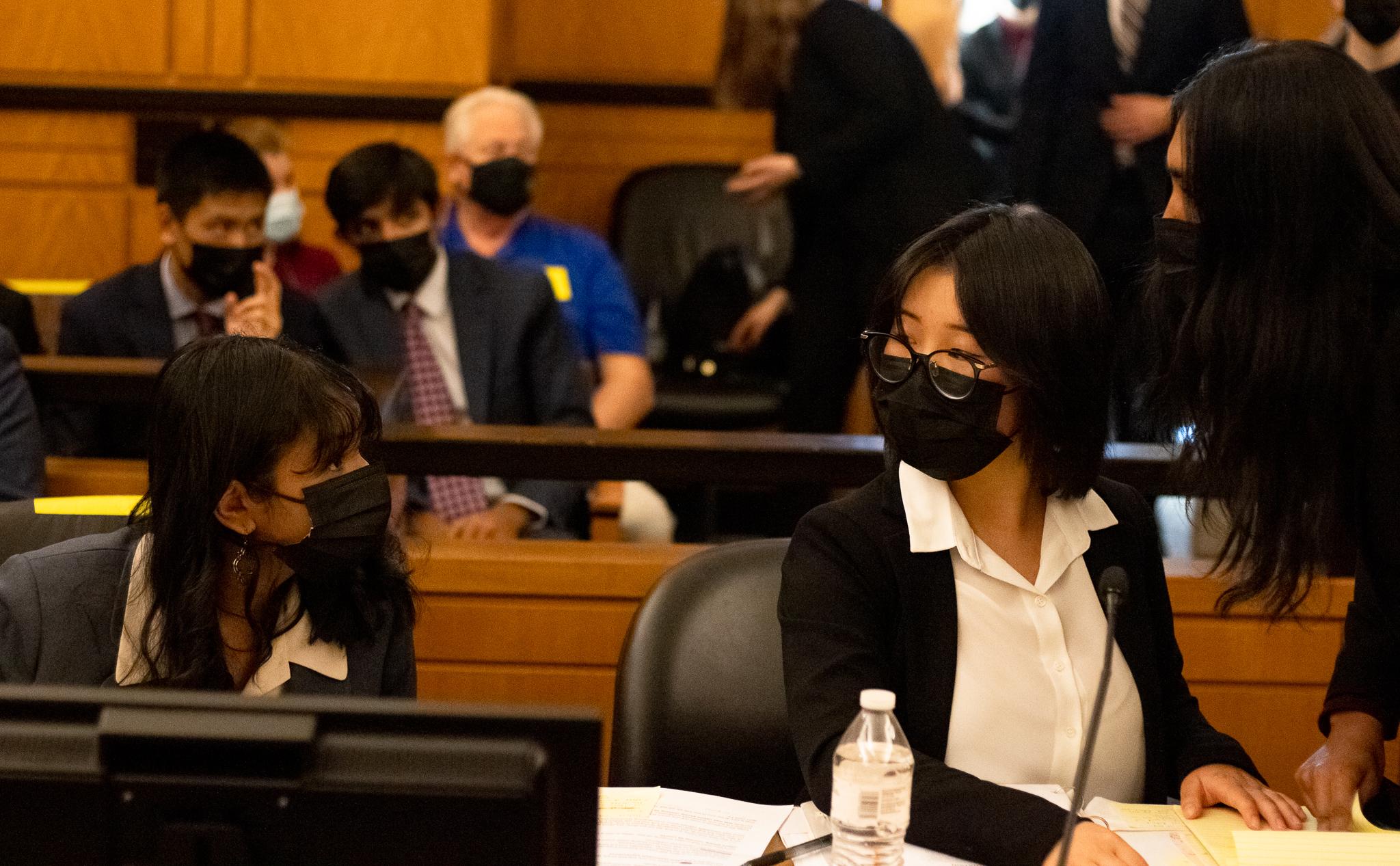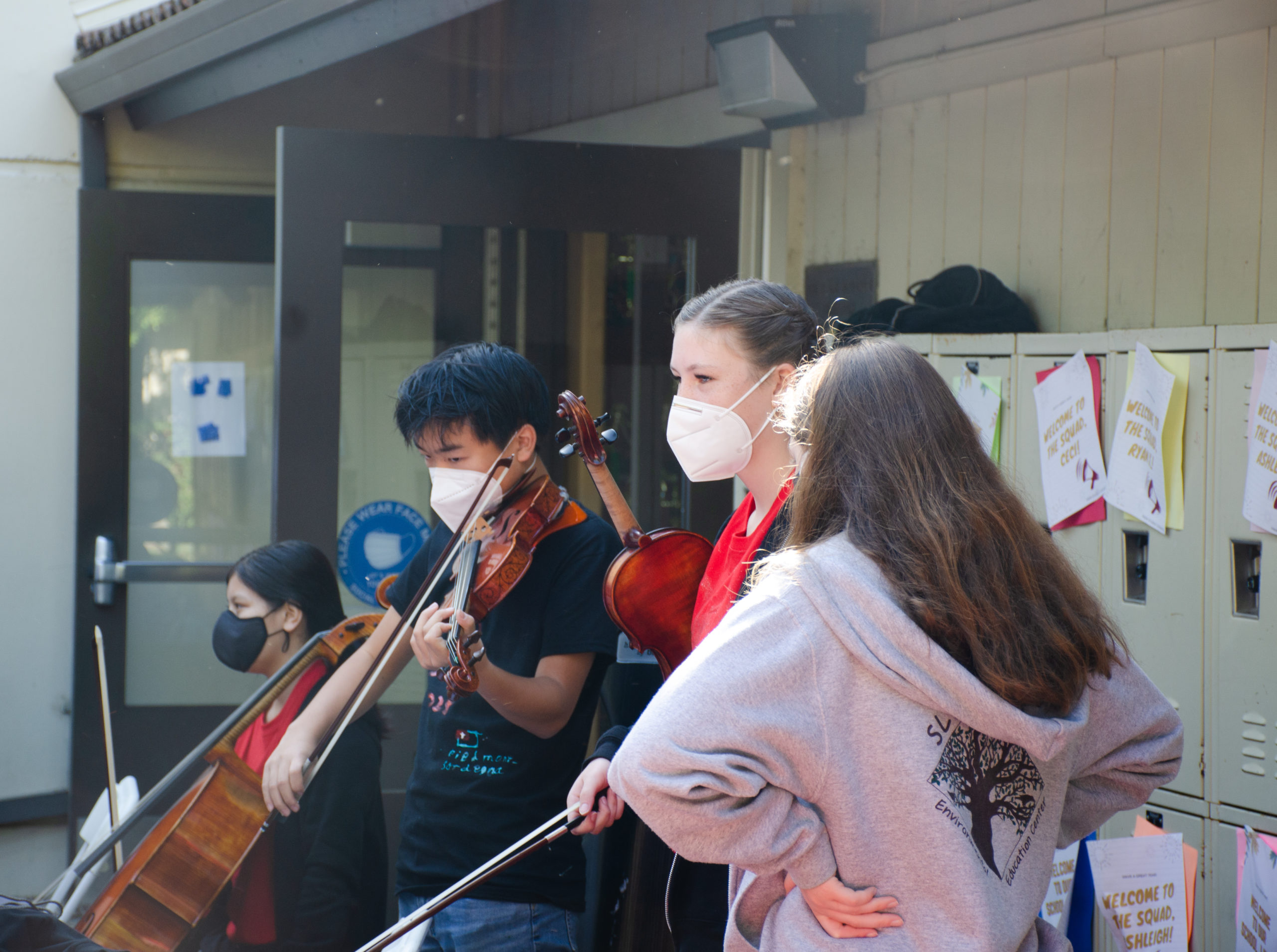AP exams, an integral part of many high school curriculums, have shifted partially in-person this year.
Last year, exams took place entirely online with a platform that some had technological issues with.
Advanced Placement classes provide a more rigorous curriculum than regular classes, with an end-of-year College Board-administered test. Passing scores on an AP exam can be used for college credits, although policies vary for each college.
This year, the College Board is offering both in-person and digital versions of AP exams for many subjects.
Students are given the choice to decide which format they will take. There are three testing periods. The first session, which is entirely in person, runs from May 3-17. The second and third session, which use both platforms, is from May 18-28 and June 1-11 according to the College Board. The contents of the tests vary depending on the test date and format. Long Essay Questions have been cut from AP U.S. History and the online AP Physics C exam does not have free-response questions, according to the College Board.
Liz Leavy, who teaches AP Art History, is worried about the online AP option.
“Everything about it last year was a disaster,” she said.
One student in her class was unable to submit her answers to the online platform, forcing her to retake the exam over a month later.
Because of these problems, she is advising her students to take the AP Art History test in person.
Chemistry teacher Victoria Conner also recommends the pencil and paper version for the AP Chemistry exam.
“There’s a lot of special characters writing chemical equations,” she said. “Sometimes they ask you to sketch out diagrams or graphs. While they say that there’s a way to do that online, it’s an extra thing you have to learn.”
English teacher Jason Hinojosa also recommended his students to take the in-person exam.
“I believe it’s easier for students to focus in a formal testing environment, and I think fewer things can go wrong,” he said.
Internet connectivity, interruptions from family, or other similar problems have the potential to disrupt the exam, he said.
However, students in Hinojosa’s AP classes are taking the exam with both formats, and he only slightly prefers the in-person version.
Another issue is that seniors choose whether to take the AP test. In AP Art History, many seniors choose not to, Leavy said.
“Only a handful are actually going to take it, largely because of the circumstances of the year,” she said.
Under the pressure of the pandemic, the AP Art History class moved at a slower pace, forcing the class to play catch-up. Because of this, Leavy isn’t pushing seniors in her class to take the exam.
Senior Pragathi Vivaik is in the AP Art History class, but she is not planning to take the exam.
“I’m already balancing quite rigorous courses along with college and other activities, and I feel like I wouldn’t have enough time,” she said. “I wouldn’t be able to do as well on the AP Art History exam as I would want to.”
Vivaik is taking her AP exams in person because she is concerned about the reliability of the online platform.
“Last year, I know a lot of people had problems,” Vivaik said. “I actually personally had a problem too with the internet.”
She hopes that taking her AP exams in person will help her avoid those problems.
Leavy said that college credit and preparedness for the exams were major factors in seniors’ decisions.
Students only get credit for passing the AP exams. If they choose not to take the test, they do not get credit.
“Lots of schools don’t take credit or have a limit on the credit,” she said. “Usually the credit they get in other classes gets them further.”
Despite this, she usually encourages students to take the AP exam.
“It’s great for them to show off how much they know and to have that satisfaction,” she said.
Conner has also found AP exam preparation more challenging.
“It’s been a little bit more difficult without being able to do all of the hands-on labs since there are a lot of a lot of testable labs on the chemistry AP,” she said.
Instead, the AP Chemistry class has been conducting hybrid labs with in-person students or virtual labs.
However, her class has been able to stay on track compared to previous years.
“I think I’m just slightly behind by a few days so I’m not too badly off right now,” Connor said. She plans to speed up her class to spend more time on test preparation as the exam approaches.
Personal circumstances also factor in the decision of many students.
Junior Lilah Shorey is taking the AP exams for U.S. History and English Language and Composition online and remotely due to the timing of the U.S. History exam, or APUSH for short.
“My birthday is May 3. If I was to take the test in person, it’s (on) May 6,” she said. “I don’t particularly want to spend my birthday studying for the AP U.S. History exam.”
The later date of the online APUSH exam would give her more time to study, Shorey said.
However, she has some concerns about the multiple-choice questions on the online platform.
“You can’t go back and change your answer, which is a little bit upsetting,” she said. “Usually when I do multiple-choice for a history test, I like to go back and read it over.”
However, there are some aspects of the online test that she prefers; there are short answer questions instead of a more in-depth, longer question.
Junior Sicily Schroeder decided she will take exams for AP English Language and Composition and APUSH remotely.
She made her decision because of the writing portions of the exams, Schroeder said.
“I’m a slow writer and a messy writer and I like to avoid writing if I can,” she said.
COVID-19 also factored into Shorey’s decision, although she does attend school in person.
“I go to school because it is easier for the teachers, and I like being around people, but I am still a bit wary of the whole thing,” she said.
COVID-19 was not a major issue for all students; Schroeder said it did not affect her decision at all.
Some students are combining both options and taking online and physical AP exams.
Senior Layla MoheyEldin plans to take all of her AP exams online with the exception of AP Microeconomics.
MoheyEldin, who is learning remotely, plans to take her AP Microeconomics exam in person due to the difficulty of online math APs.
“Last year, I did hear that they were harder and required a lot more comprehension of specific topics instead of looking at an overall understanding,” she said.
MoheyEldin also said that the preparation that her class has done is more focused on multiple-choice questions.
“We’ve been doing these exams with a piece of paper and a pencil, so I felt like that would work better for how I’ve prepared,” she said.
The AP Microeconomics exam will be MoheyEldin’s first in-person AP exam; she took all of her AP exams last year remotely, so she’s feeling a little nervous.
“A lot of the nerves stems from not having done it before, which is why I was nervous last year,” MoheyEldin said. “So this year I’m feeling pretty mellow about the online exam.”
— By Samhita Kumar
Originally published in the April 13 edition of the Octagon.




